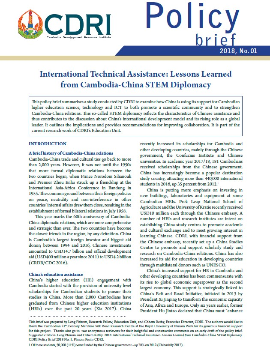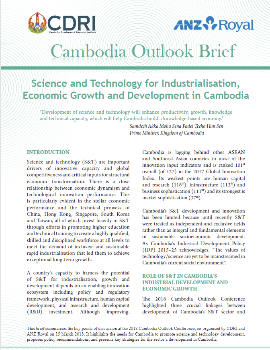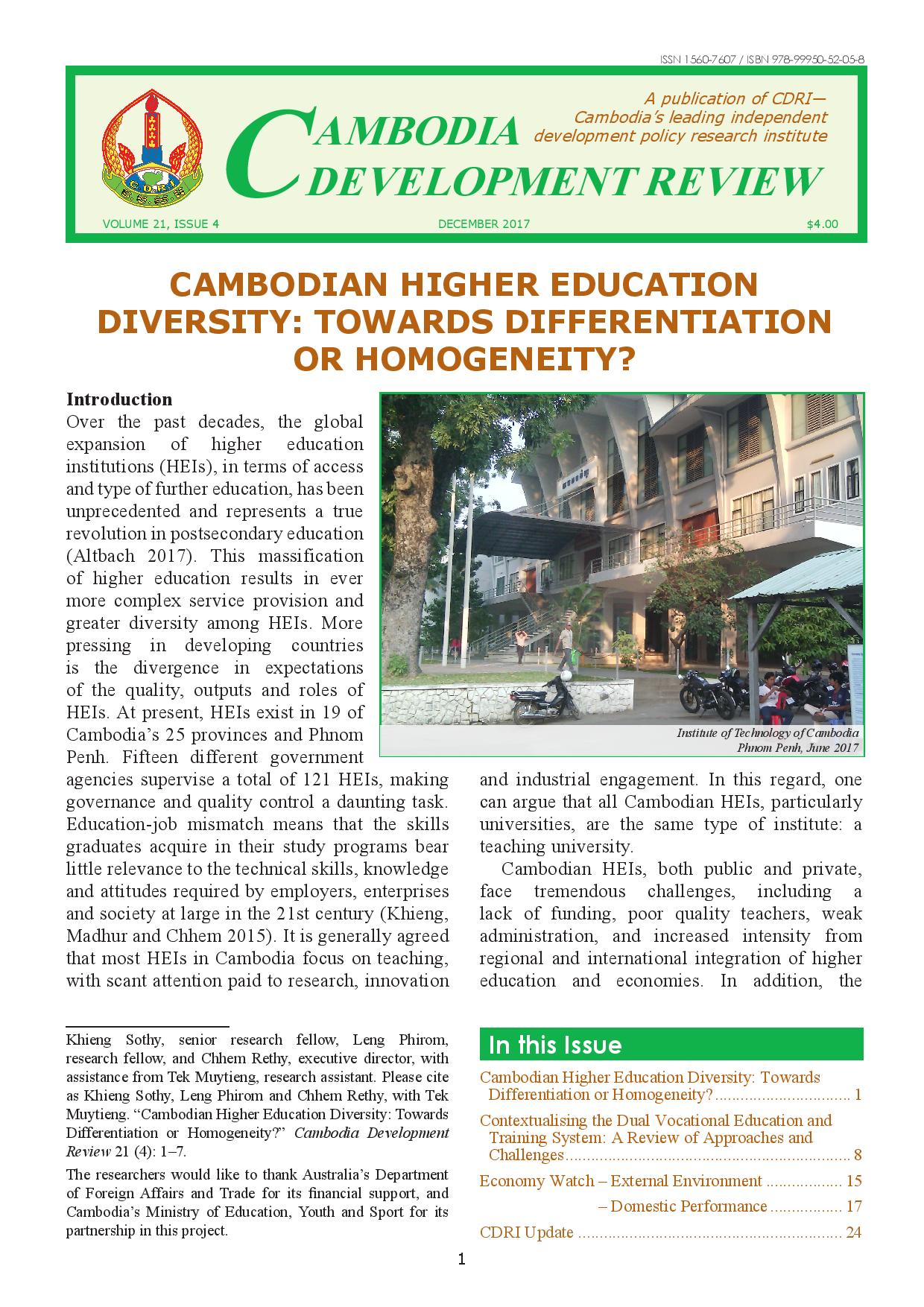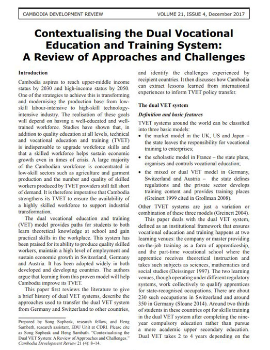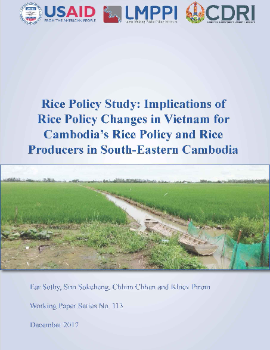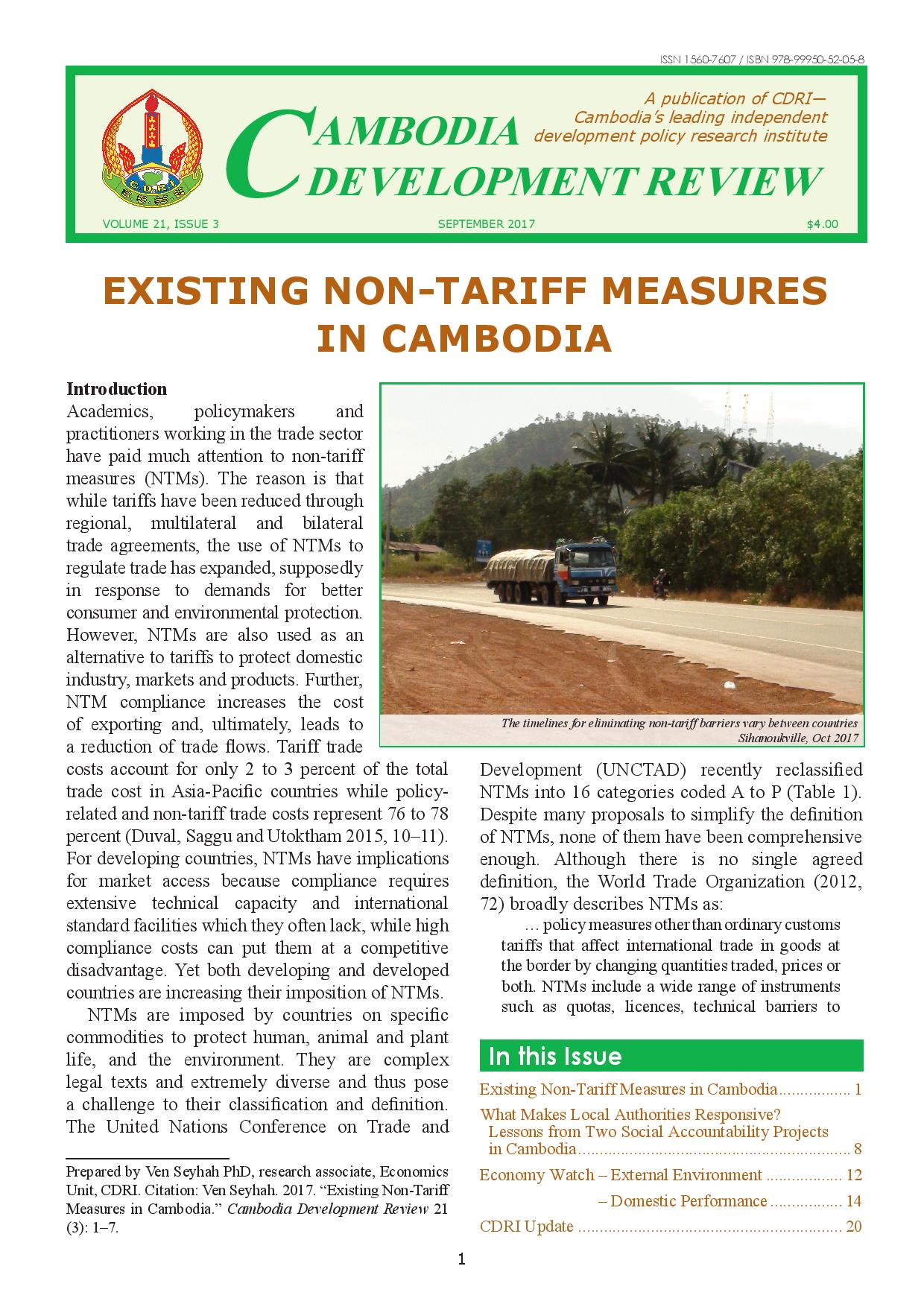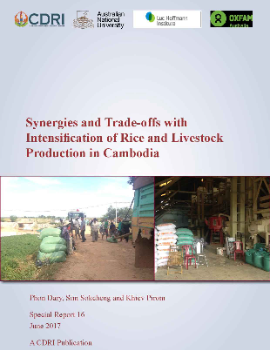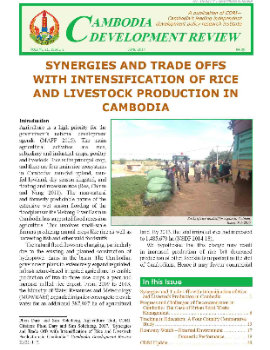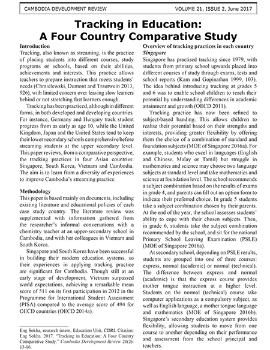Rice Policy Study: Implications of Rice Policy Changes in Vietnam for Cambodia’s Rice Policy and Rice Producers in South-Eastern Cambodia
There are many studies about rice production in Cambodia, but none focus on the geographical location of rice production, particularly in the south-eastern provinces of Prey Veng, Takeo and Svay Rieng. Farmers in these areas produce mainly low-value rice (IR504) most of which is exported as wet paddy to Vietnam. The Vietnamese government recently decided to restructure its economic and agricultural policy by shifting from low-value rice to high-value rice and other agricultural crops. It is strongly believed that this […]
A Path Analysis of Cambodian Faculty’s Research Intention: Focusing on Direct and Mediating Effects at Individual Level
Intention to engage in research activities has probably been one of the least investigated concepts when it comes to literature on relationship among research attitudes, research behaviors and research outputs. Only few studies in the past drew on the Planned Behavior Theory to explore how research intention mediates between certain antecedent variables and research performance. Extending the previous literature, this current study aimed to use some key variables from previous theories [i.e. Planned Behavior Theory and Social Cognitive Career Theory] […]
Coming of Age in Peace, Prosperity, and Connectivity: Cambodia’s Young Electorate and Its Impact on the Ruling Party’s Political Strategies
Cambodia’s youthful population is significantly responsible for a recent unexpected decline in the popularity of the Cambodian People’s Party, which has governed since the end of the Khmer Rouge regime. This increasingly young electorate has lived through an era of peace and openness with regular multi-party elections and impressive economic growth resulting in rapid structural change in the economy. Compared to their parents’ generation, this younger generation is better educated, highly mobile, aspires to salaried employment, and is well connected […]
Synergies and Trade-offs with Intensification of Rice and Livestock Production in Cambodia
This study examines the benefits, risks and costs of changing from flood recession to intensive irrigated agriculture in Cambodia. Methods used include food supply calculation, nutritional supply estimation, potential production area projection, water use estimation, and energy consumption estimation. Three scenarios were designed to model current food supply and projected food production (in terms of protein, calories and lysine), water use and energy consumption in the potential production area. Scenario 1 was double rice cropping (wet-reason rice and dry-season rice). […]

